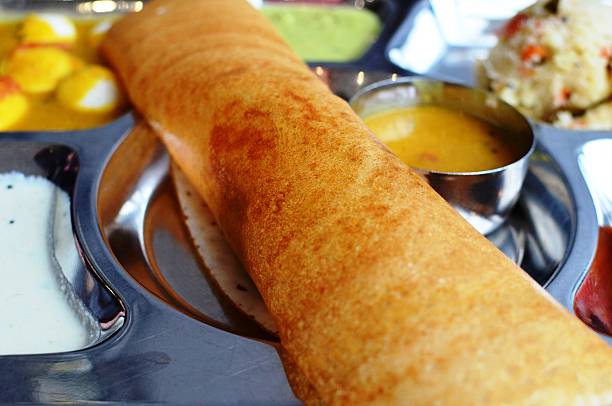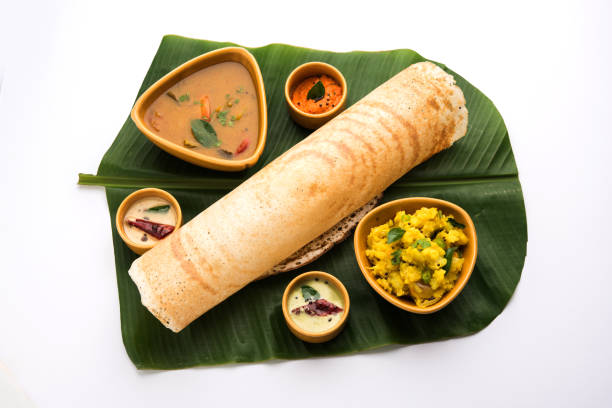Dosa is a popular South Indian dish made from fermented rice and lentils. It is a staple food in many parts of India and is known for its delicious taste and versatility. However, many people are curious about the nutritional value of dosa per 100g and whether or not it is a healthy food choice. In this article, we will explore the nutritional content of dosa per 100g and discuss whether or not it is a healthy food choice.
First, let’s look at the nutritional value of dosa per 100g. According to the USDA, dosa contains approximately:
Energy: 130.8 kcal
Protein: 3.97 g
Fat: 2.35 g
Carbohydrates: 23.86 g
Fiber: 0.8 g
Sugar: 0.65 g
Sodium: 4 mg
As you can see, dosa is a relatively low-calorie food that is also low in fat and sugar. It is a good source of carbohydrates, which are an important energy source for the body. Dosa is also a good source of protein, which is essential for growth and repair of the body’s tissues.
Despite being a low calorie food, Dosa is not a good source of essential vitamins and minerals, such as Vitamin A, Vitamin C, Iron, Calcium, and other micronutrients.
When it comes to whether or not dosa is a healthy food choice, it really depends on how it is prepared and what it is paired with. For example, if dosa is made with whole grains, it can be a nutritious and healthy food choice. However, if it is made with refined flour, it will have less nutritional value and may not be as healthy. Additionally, if dosa is paired with a high-calorie or high-fat filling, such as butter or cheese, it can quickly become an unhealthy food choice.
In conclusion, Dosa per 100g is a low calorie, low fat and low sugar food and is a good source of carbohydrates and protein. However, it is not a good source of essential vitamins and minerals. The way dosa is prepared and what it is paired with can also affect its nutritional value and overall healthfulness. To make dosa a healthy food choice, it is best to make it with whole grains and pair it with nutritious fillings such as vegetables and legumes.

 Home
Home Health
Health Diet & Nutrition
Diet & Nutrition Living Well
Living Well More
More












